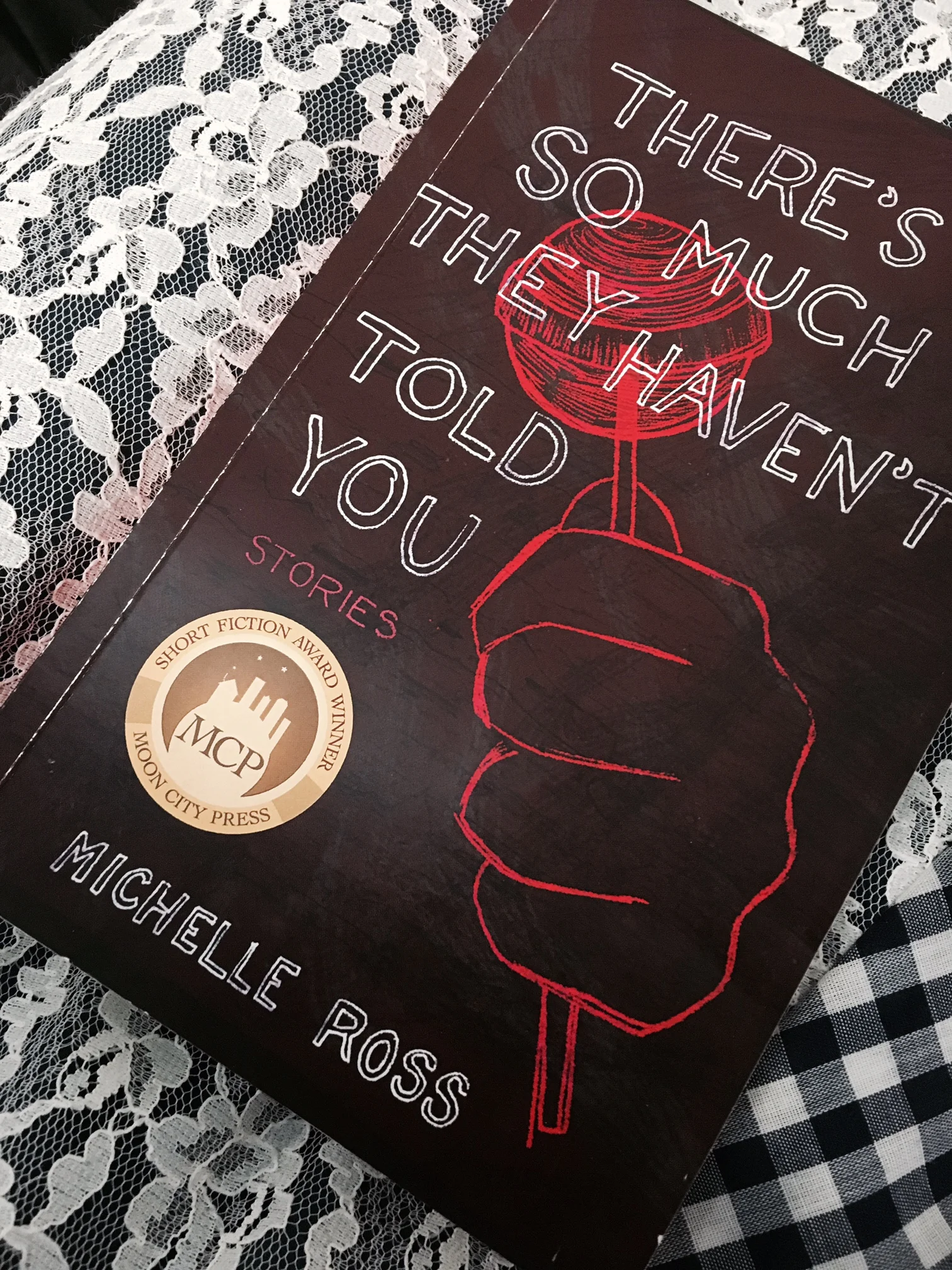"I write everything down. Details are my inheritance."
I like writing about a book while I'm still in the middle of it - I'm halfway up the roller-coaster crest, or mid-way through a meal (still hungry). Today I finished Michelle Ross' excellent There's So Much They Haven't Told You. The end of reading makes me feel like some bell reverberates in me. Or like there's a well in my stomach that's been filling, and someone's lugging the bucket up. It's a strong feeling. It's a feeling you get when you say goodbye.
And it's of course because of the tone of the last couple of stories. These featured broken mothers with dogs, and the daughters looking in on them. In one, the mother has cancer, and crossed 4 state lines to deposit her dog before going on a diamond-digging expedition. "[S]he places the dog into my arms as gently and carefully as if handing me an organ from her own body," Michelle writes, making me sea-sick with familiarity (when mothers give things to their daughters, the things daughters do not always want.) In the final story, the mother needs rent money, wants it deposited in cash at the reception desk so her daughter doesn't have to see her (her hoarder's home, her enormous, Paul-Bunion-sized dog). The daughter asks to use the bathroom in her mother's apartment as an excuse to see - survey - take in - memorize - because sometimes that's as close to connection as one can get.
In both of these closing stories, there is this repelling/attracting effect between characters. They are connected to one another, kind of against their will, kind of tangled up like snakes. They don't always want to love one another - so guilt and grief substitute. Michelle Ross compares it to a punch card, when the speaker packs her mother's suitcase: "I folded each piece as if each fold were a punch on my responsibilities-toward-my-dying-mother punch card, which, once filled, would earn me absolution from the nuisances of guilt and regret."
I have a difficult relationship with my own mother, so these stories leave me feeling vulnerable, twisted up. I know what the character means when she says she finally understands the impulse towards plastic surgery - erasing the details of one's mother out of one's face.
This is a frequent feeling while reading Michelle's book. The stories in this collection are scientific, pulsing, lyrically on-point. The characters inside them push away and pull towards someone or something simultaneously - with all their might. It's like they're all waiting for the Jenga house they live inside to collapse. It's a feeling I have when I wonder how much like my mother I am, which is probably a feeling my mother has about her mother, and so on towards infinity. We're all coiled snakes eating each other's tails.
I love this about Michelle's writing because she seems to embrace the sharp edges of characters as lovingly as their soft middles. I love that in "Pam's head" there's this creepy post-apocalyptic gel-world where humans dig mindlessly, even going so far as to chunk apart a body into manageable pieces to get it out of the way. I love that in "Rattlesnake Roundout" a widow wants to the pour the remains of her ex-husband down the throat of a snake. I love the description of hoarders as "empty and clogged at once, full to the brim with what's useless," or the description of another mother-daughter pair: "We're like mollusks or clams or conchs. We like being sucked up inside ourselves."
This book makes me less lonely. This book breaks into homes and bodies full of dysfunction, and looks each character in the eye. Maybe what's most moving about Michelle's stories is they are honest. They don't flinch. As one story puts it, "She values preserving the illusion of cleanliness. But me, I'd prefer to be mucked up with the truth." Mid-way through the book I felt sometimes like I was falling through air at the end of her stories. They land where they land. They pull me into that orbit.

